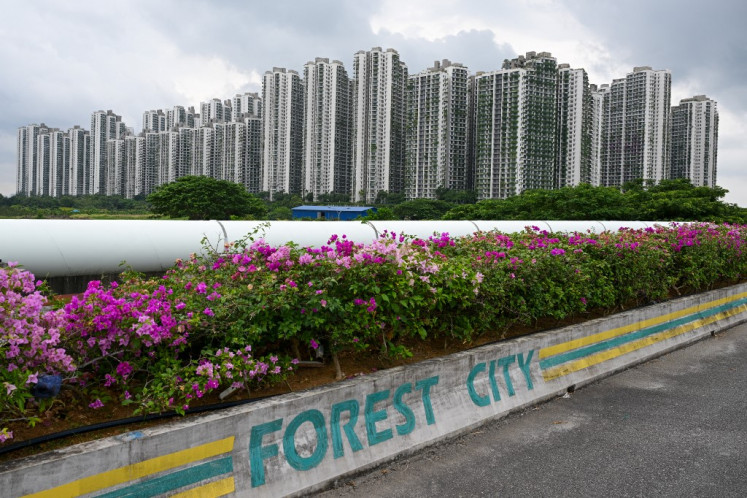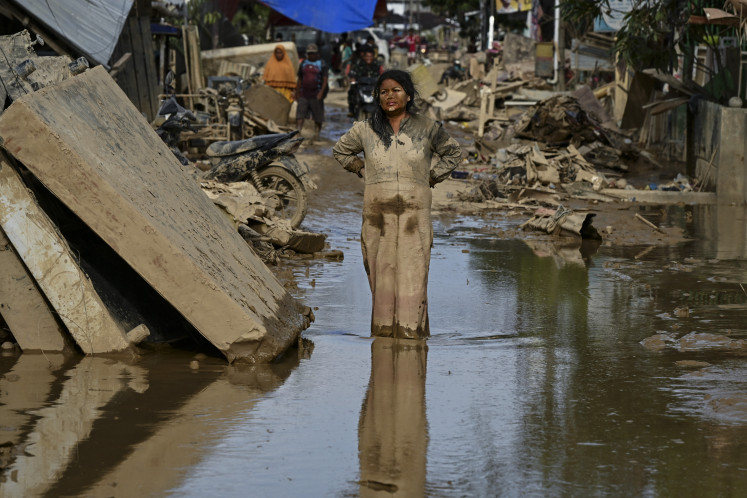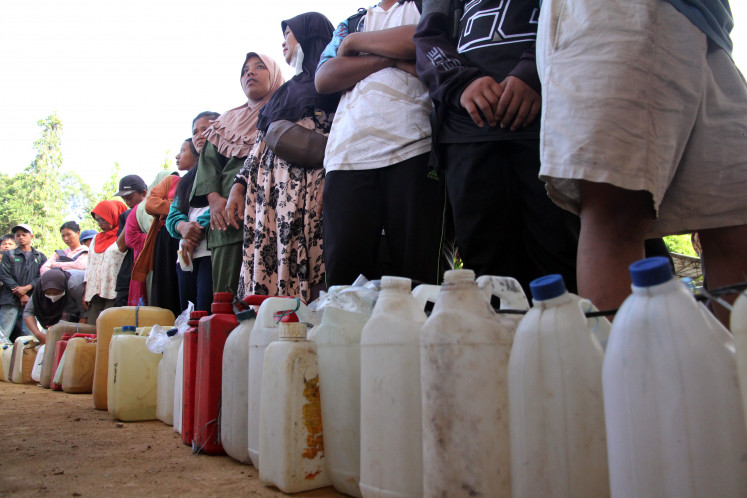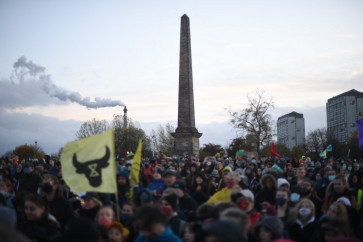Popular Reads
Top Results
Can't find what you're looking for?
View all search resultsPopular Reads
Top Results
Can't find what you're looking for?
View all search resultsHow Indonesia's G20 presidency promotes climate transition
The OECD has projected that the global economy could be 11-14 percent lower by mid-century than in a world without climate change.
Change text size
Gift Premium Articles
to Anyone

The C0VID-19 pandemic has changed human behavior. People are afraid to make decisions because they worry too much about the future. However, not making a decision could worsen business and the economy. Global gross domestic product (GDP) growth shrank 4.9 percent in 2020, and the International Monetary Fund estimates the GDP to grow 3.2 percent below pre-pandemic projections.
But can we imagine what could be worse than the pandemic to the economy? Climate change and nature degradation. Under the current trajectory, the Organization for Economic Cooperation and Development (OECD) projected that the global economy could be 11-14 percent lower by mid-century than in a world without climate change. Like the pandemic, climate change is not an issue of a single jurisdiction or a group of countries. Whether advanced, emerging or low-income, all countries have to deal with this challenge.
The good news is that global commitments to overcoming the issue have been made through the Paris Agreement and the United Nations Framework Convention on Climate Change's (UNFCCC) ultimate objective. These two have shown ambitious targets to achieve low-greenhouse gas (GHG) emissions in an orderly timeline.
We know the problem and we have ambition. The elephant in the room is how the world, especially developing countries like Indonesia, can achieve their ambitious targets amid the pandemic. Also, compared to advanced countries, developing economies tend to have a more limited fiscal capacity, less advanced technology for renewable energy and lower human capital capacity in green projects. At this point, global collaboration and the mobilization of capital are essential elements for achieving the targets.
For that reason, with the spirit of "Recover Stronger, Recover Together", the Indonesia Group of 20 Presidency-Finance Track encourages G20 to strengthen global cooperation by focusing on orderly, just and affordable climate transition and monitoring climate risk on financial and macroeconomic stability.
In general, the "orderly, just and affordable climate transition" implies that both developed markets and developing countries can afford new green technologies and transition finance.
Therefore, all groups of countries more potentially achieve the targets of the Paris Agreement and UNFCCC objective in an orderly but fair manner.



















